From £39 per month
Simplifying Your Self-Assessment Process
Completing a self-assessment tax return can be confusing, especially with changing tax rules and potential penalties for mistakes. We assist sole traders, freelancers, and individuals with additional income sources in completing their self-assessments correctly and on time.

Who needs to complete a self-assessment?
If you receive income outside of a standard PAYE job, you may need to complete a self-assessment tax return. This includes:
- Sole Traders – If you’re self-employed, you need to declare your income and expenses.
- Freelancers – All additional freelance income must be reported.
- Rental Income – Landlords must report income from rental properties.
- Investors – Capital gains from selling property or investments need to be declared.
- Company Directors – If you receive dividends or have untaxed income, you need to file a self-assessment.

We offer affordable Self-Assessment Services
Stay compliant and stress-free with our expert self-assessment services, starting from just £39 per month.
- Accurate preparation and submission of your self-assessment tax return.
- Ensuring compliance with MTD requirements.
- HMRC Registration & communication - We take care of the details
- Personalized support tailored to your financial situation.
How we help with your self assessment?
Income & Expense Review
We carefully review your income, expenses, and any allowable deductions to ensure accuracy and reduce your tax liability.
Filing & Submission
We take care of submitting your return directly to HMRC, so you don’t have to worry about deadlines.
Maximise Savings
We identify opportunities to minimise your tax liability through legal allowances and reliefs.
No Hidden Fees
We are always transparent with our fees so you dont need to worry about surprises.
What does it mean to be a sole trader?
A sole trader is the simplest way to start a business in the UK. It means running a business as an individual, where you are personally responsible for its debts and profits. You keep all after-tax profits but are also liable for any losses.
Here’s the process to start trading as a sole trader in the UK:

Choose a Business Name to trade under
You can use your own name or create a business name.

Inform HMRC that your Self Employed
Let HMRC know you’re self-employed.

Register for Self-Assessment
You’ll need to file a Self-Assessment tax return yearly.

Advantages of being a sole trader
Being a sole trader is a popular choice for many small business owners because it offers simplicity and flexibility. The straightforward setup and management make it an attractive option for those starting out.
- Easy to Set Up – Minimal paperwork and no registration fee with Companies House.
- Full Control – You make all business decisions and keep the profits.
- Tax Simplicity – You only need to file a Self-Assessment.
- Fewer Costs – More cheaper to run.
The new (MTD) Making Tax Digital for Income Tax
Making Tax Digital for Income Tax (MTD for IT) is a new government initiative that will change how self-employed individuals and landlords report their earnings to HMRC. It aims to make tax reporting more accurate, efficient, and digital-first.
Here's what you need to know
Digital Record-Keeping: You’ll need to keep digital records of income and expenses using compatible software.
Quarterly Updates: Instead of one annual return, you’ll submit income and expenses to HMRC every three months.
Final Declaration: You’ll still complete a final year-end declaration, similar to a traditional tax return.
Who does it apply to?
From April 2026 – Self-employed individuals and landlords with income over £50,000 per year.
From April 2027 – Those with income over £30,000 per year.
But don’t worry we take care of the entire process for you, ensuring you’re ready for MTD with minimal effort.
MTD ITSA service packages
Every business is different, so we offer four levels of support depending on how much help you would like with your bookkeeping, quarterly submissions and tax planning. Choose the package that best fits your needs or talk to our team if you are unsure which one is right for you.
MTD Essentials
£39 + VAT per month
Ideal for simple, low-volume & for clients entering their own income & expenses into Xero .
- Includes up to 2 bank accounts
- Onboarding and compliance check
- Hubdoc setup
- Xero setup and 1-hour training
- Quarterly MTD ITSA submissions
- EOPS and final declaration
- Email and WhatsApp support
MTD Plus
£59 + VAT per month
For clients wanting light bookkeeping support and monthly checks.
- Includes up to 4 bank accounts
- Monthly bookkeeping review
- Monthly bank reconciliations
- Onboarding and compliance check
- Hubdoc setup
- Xero setup and 1-hour training
- Quarterly MTD ITSA submissions
- EOPS and final declaration
- Email and WhatsApp support
MTD Advanced
£79 + VAT per month
For landlords or businesses with multiple income sources, needing proactive support.
- Includes 1–5 bank accounts to be reconciled
- Quarterly tax forecasts
- Quarterly Zoom reviews
- Monthly bookkeeping review
- Onboarding and compliance check
- Hubdoc setup
- Xero setup and 1-hour training
- Quarterly MTD ITSA submissions
- EOPS and final declaration
- Email and WhatsApp support
MTD Premium
£99 + VAT per month
Full bookkeeping, full MTD support, and performance review.
- Includes multiple bank accounts & multi-currency support
- Weekly bookkeeping
- VAT Returns
- Annual performance review
- Quarterly tax forecasts
- Quarterly Zoom reviews
- Onboarding and compliance check
- Hubdoc setup
- Xero setup and 1-hour training
- Quarterly MTD ITSA submissions
- EOPS and final declaration
- Email and WhatsApp support
These packages include a standard level of transactions. Any additional work required outside the agreed scope will always be discussed and quoted separately.
OutsourceCloud Self Assessment services
Got a question?

The deadline for online self-assessment submissions is 31 January following the end of the tax year.
If you miss the 31 January deadline, you could face:
*£100 fine if you’re up to 3 months late.
*Additional daily penalties of £10 per day for up to 90 days after 3 months.
*Interest on any unpaid tax from the due date.
Yes! If you’ve missed the deadline or received a penalty notice, we can help you get back on track and work with HMRC to resolve any issues.
Yes absolutely! Alot of our self - assessment clients also take on our bookkeeping package.
You won’t file one return at the end of the year anymore. Instead, you’ll submit quarterly summaries of income and expenses, plus a final end-of-year declaration.
You’ll need HMRC-recognised software like Xero, QuickBooks, or FreeAgent. We’ll help set this up and show you how to use it, or manage it all on your behalf if we do your bookkeeping.
If you fail to comply, you may face penalties and late filing fees. That’s why it's crucial to prepare early and we're here to help you get MTD-ready with minimal hassle.









